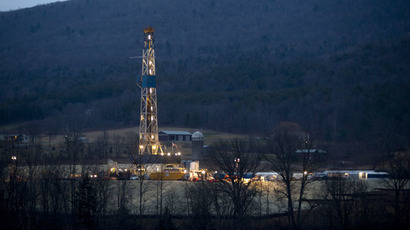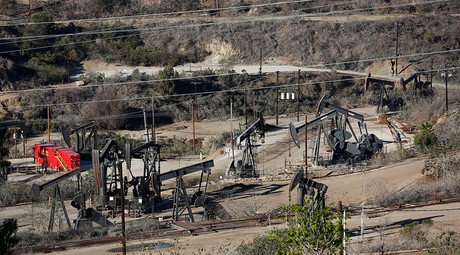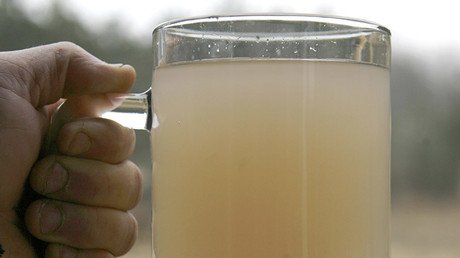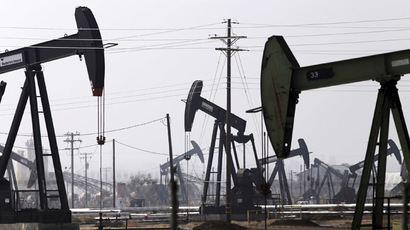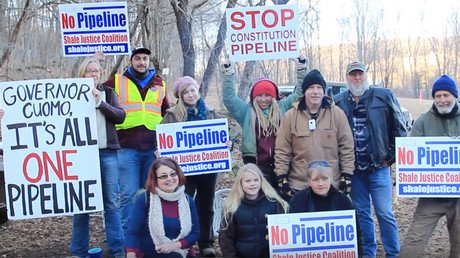Fracking referendum? Pennsylvania primary offers choice for Democratic voters.
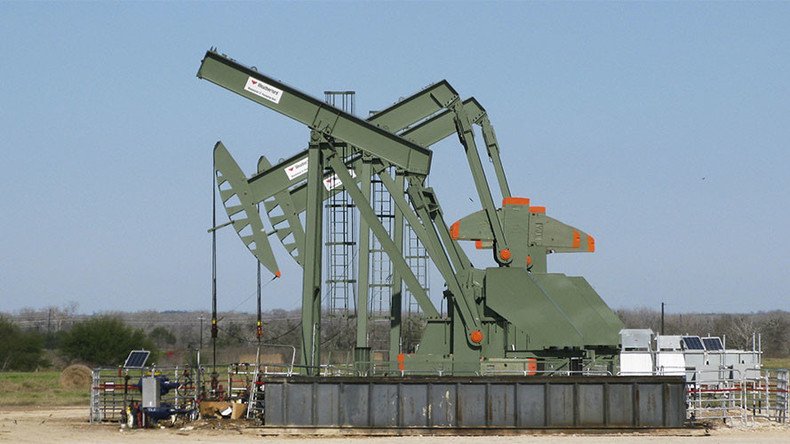
The Pennsylvania primary election this week will pit national and statewide Democrats who have various viewpoints on the future of hydraulic fracturing, or fracking, in the nation's second-most prominent fracking state.
Democratic presidential candidates Bernie Sanders and Hillary Clinton have expressed different views on fracking, a process that, in order to unleash oil or natural gas, requires blasting large volumes of highly pressurized water, sand, and other chemicals into layers of rock.
Fracking sites have proliferated immensely across the US amid the current oil and gas boom in North America. Pennsylvania, the second-biggest natural gas producer in the US behind Texas, has seen its part of the fracking boom along the Marcellus and Utica Shale formations. Supporters of fracking say the energy industry has in recent years supplied hundreds of thousands of jobs to the state while bringing in billions of dollars.
"Despite recent declines in Pennsylvania’s overall economy, the state’s oil and natural gas industry has seen substantial growth in terms of both employment and wages," the US Bureau of Labor Statistics reported in 2014.
Yet the costs of fracking — including groundwater contamination, heightened earthquake activity, exacerbation of drought conditions, and a variety of health concerns for humans and the local environment — have given many Americans pause, as they must deal with the effects while government regulators allow industry to drill away.
States such as Oklahoma, Texas, Alabama, and Ohio have experienced a major increase in the incidence of minor earthquakes that scientists have attributed to modern fracking operations.
Headed to the polls on Tuesday, Pennsylvanians are offered a choice. Sanders, for example, wants a nationwide ban on the practice based on its negative impacts. His opponent, Clinton, has been more cautious, saying she would put more restrictions on fracking.
In a debate prior to the New York primary election last week, Clinton called natural gas, the product of fracking, a "bridge fuel" that can help relieve reliance on coal.
“You know, I don’t support it when any locality or any state is against it, number one," Clinton said, listing a number of caveats to her support of the practice. "I don’t support it when the release of methane or contamination of water is present. I don’t support it — number three — unless we can require that anybody who fracks has to tell us exactly what chemicals they are using. So by the time we get through all of my conditions, I do not think there will be many places in America where fracking will continue to take place.”
Sanders released an anti-fracking ad earlier this month. Ahead of the primary in New York, a state that banned fracking in 2014, Sanders excoriated fracking, linking it to global climate change.
“What may have been considered unrealistic or pie in the sky just a few years ago has now been achieved in New York because you made it happen,” Sanders said two weeks ago. “The growing body of evidence tells us that fracking is a danger to our water supply, our most precious resource. It is a danger to the air we breathe. It has resulted in more earthquakes. It is highly explosive. And it is contributing to climate change.”
During the New York debate, Sanders said that Clinton has "actively supported fracking around the world."
Among Clinton's largest fundraisers are lobbyists for oil and gas corporations, including Chevron and TransCanada, the Canadian company responsible for the Keystone and Keystone XL tar sands pipelines. In 2014, Mother Jones reported that as US secretary of state, Clinton personally lobbied for US fracking rights with leaders of other nations.
"Under her leadership, the State Department worked closely with energy companies to spread fracking around the globe—part of a broader push to fight climate change, boost global energy supply, and undercut the power of adversaries such as Russia that use their energy resources as a cudgel," Mother Jones reported.
None of the Republican presidential candidates — including Ted Cruz and John Kasich, from the fracking-heavy states of Texas and Ohio, respectively — have expressed unease with fracking.
Outside of the presidential race, candidates for Pennsylvania's Democratic Senate nomination have also quarreled over the future of fracking in the state. Running against incumbent Republican US Senator Pat Toomey, two Democratic senatorial candidates, former US congressman Joe Sestak and Braddock Mayor John Fetterman, have called for a moratorium on fracking.
Sestak "has always maintained his call for a moratorium on fracking until the process is properly regulated and controlled," Sestak's campaign website states.
A third Democratic Senate candidate, Katie McGinty, is the former head of the state's Department of Environmental Protection. She led the agency during Governor Ed Rendell's administration as the state's fracking boom began. McGinty, endorsed by President Barack Obama, has been criticized for being too cozy with fracking companies. She says she is for stricter standards on fracking, but she does not support a moratorium.
“I’ve dedicated my professional career to protecting the environment and also shattering the myth that if you’re for jobs, you’re against the environment—and if you’re against the environment, you’re against jobs,” she said during a recent debate.
Fetterman countered McGinty, saying, “Ms. McGinty, along with Governor Rendell, brought fracking to Pennsylvania."
“Own your donors,” Fetterman added during the debate. “I never understand why Ms. McGinty wants to run away from her history in fracking. Embrace what you’ve done—embrace these things that you’ve done in your career.”
In March, a nationwide Gallup poll found that 51 percent of those surveyed said they were opposed to fracking. In July 2015, a Robert Morris University poll found that 57 percent of Pennsylvanians surveyed supported the practice.
